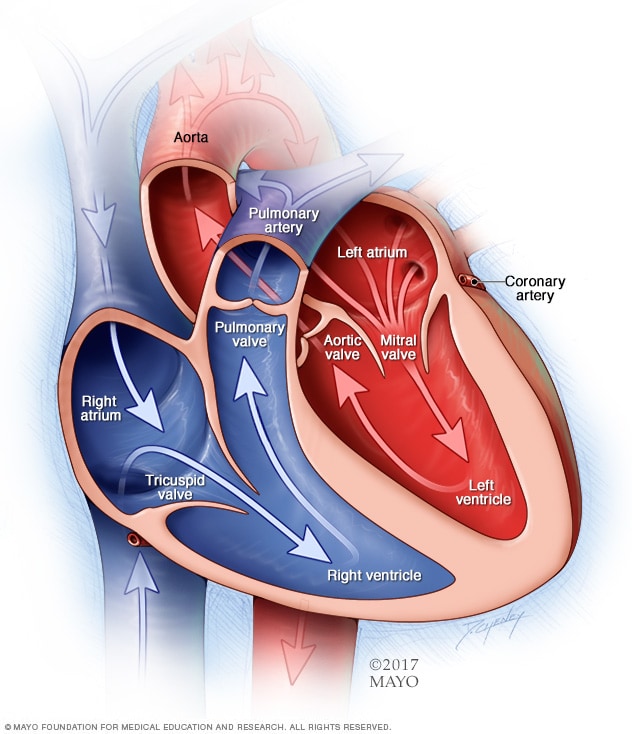
Mayo Clinic researchers have uncovered stem cell-activated mechanisms of healing after a heart attack. It began with searing chest pain a serious symptom Kristin understands well from three decades as a cardiology nurse at Mayo Clinic.

Having one during the night when the heart should be most at rest means.
Mayo clinic heart attacks. By Mayo Clinic Staff Typical heart attack symptoms Chest discomfort or pain. This discomfort or pain can feel like a tight ache pressure fullness or squeezing in your chest lasting more than a few minutes. A heart attack occurs when an artery supplying your heart with blood and oxygen becomes blocked.
Fatty deposits build up over time forming plaques in your hearts arteries. If a plaque ruptures a blood clot can form and block your arteries causing a heart attack. During a heart attack tissue in your heart muscle dies due to lack.
The symptoms of a heart attackare often pretty clear. Pressure tightness pain or a squeezing or aching sensation in your chest or arms that may spread to your neck jaw or back. Nausea indigestion heartburn or abdominal pain.
And lightheadedness or sudden dizziness to name a few. Mayo Clinic researchers have uncovered stem cell-activated mechanisms of healing after a heart attack. Stem cells restored cardiac muscle back to its condition before the heart attack in turn providing a blueprint of how stem cells may work.
Mayo Clinic on Aspirin - Dr. Virend Somers is a Cardiologist from the Mayo Clinic who is the lead author of the report in the July 29 2008 issue of the Journal of the American College of Cardiology. Most heart attacks occur in the day generally between 6 AM.
In this study Mayo Clinic researchers wanted to see if age was a key factor in sex-related differences in patients with a heart attack. Using public all-payer hospitalization data from the Nationwide Inpatient Sample the team of researchers evaluated more than 67 million hospitalization records for heart attacks. After surviving a heart attack of her own cardiology nurse Kristin OMeara has a clear and important message for women.
Listen to your body Kristin OMearas story she says is one of denial. It began with searing chest pain a serious symptom Kristin understands well from three decades as a cardiology nurse at Mayo Clinic. Mayo Clinic on Aspirin Dr.
Virend Somers is a Cardiologist from the Mayo Clinic and lead author of the report in the July 29 2008 issue of the Journal of the American College of Cardiology. Most heart attacks occur in the day generally between 6 AM. Having one during the night when the heart should be most at rest means.
Use the heart disease risk calculator to find out your risk of cardiovascular disease. This heart disease risk assessment is most accurate for people between ages 20 and 74. For people younger than 20 or older than 74 the presence of two or more cardiovascular risk factors suggests a higher risk of cardiovascular disease.
Broken heart syndrome This condition often brought on by stressful situations that can cause severe but usually temporary heart muscle failure occurs more commonly in women after menopause. This condition also may be called takot subo cardiomyopathy apical ballooning syndrome or. Instead a heart attack myocardial infarction occurs when the coronary artery which supplies blood to the heart becomes blocked depriving the heart of vital blood and oxygen.
The blockage is most commonly due to narrowing of a coronary artery that is caused by a buildup of cholesterol plaques a condition known as atherosclerosis. Hidden Heart Attack - Mayo Clinic - YouTube. Hidden Heart Attack - Mayo Clinic.
If playback doesnt begin shortly try restarting your. A Study to Identify Risk Factors from any Reason for Hospital Readmission Death or Declining Health in Older Persons who were Hospitalized with a Heart Attack Rochester MN. The purpose of this study is to gather data to develop a risk model that can be used to help doctors predict the recovery of older persons who have been admitted to the hospital with a heart attack.